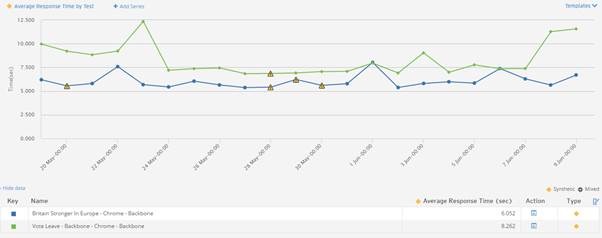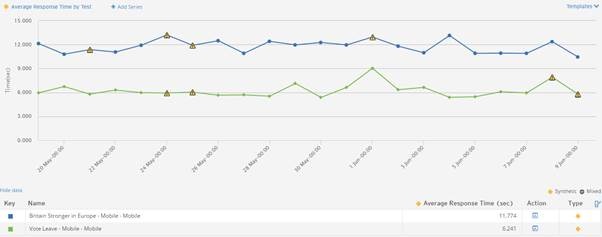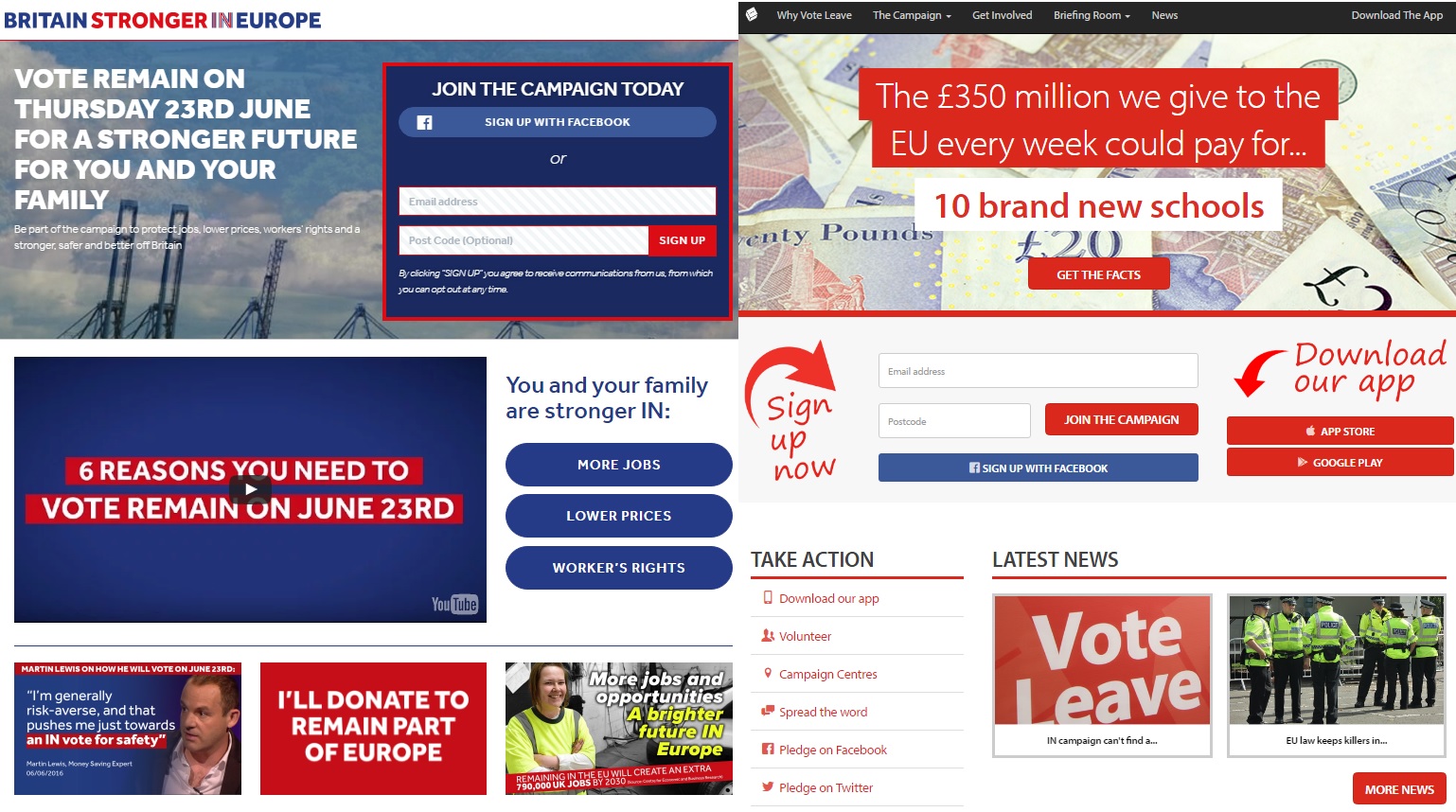With the EU referendum just one day away, new research looks at how well both the offoical websites of the Leave and Remain websites are performing.
The study, from Dynatrace, indicates that the Remain campaign holds a two second lead on the desktop, but leave is much slicker on mobile.
Dynatrace has monitored the performance of the official campaign websites for both sides of the debate; Vote Leave and Britain Stronger In Europe, from mobile and desktop devices over the weeks running up to the referendum.
The analysis reveals that the campaign to remain is leading the race from desktop devices, but Vote Leave has been working hard to close the gap. However, it’s a very different story on mobile devices, where Britain Stronger In Europe is lagging behind with an average response time double that of Vote Leave.
Key findings include:
· More disenchantment for voters: As the arguments for and against the EU have continued to leave a lot to be desired, the tests revealed the performance of the groups’ websites to be equally disappointing. Both campaigns have opted for websites that are content-heavy, resulting in slow loading times (between 6 and 8.5 seconds on desktops) when compared with other public information sites, such as Gov.uk (1.25 seconds).
· A tale of two halves: The remain campaign is leading the race from the desktop, but it’s a very different story on mobile devices, where Vote Leave halved the response time being delivered by its rival. However, anyone accessing either site from a low-quality connection could experience a painfully long wait on both mobile and desktop sites, due to the large size of both pages.
· Mismatched priorities: There is a disparity between the voters that campaigners claim to be prioritising and how they’ve optimised website performance. While the pro EU camp claims the smartphone-savvy younger generations are most likely to vote to stay in the EU, it has failed to prioritise its mobile site, giving the leave campaign the lead in the digital performance stakes. The story holds equally true from the perspective of their rivals, who are behind in the desktop performance race despite the likelihood of that proving to be its own core battleground.
Desktop site
As the campaigners’ arguments for or against leaving the EU have continued to dissatisfy voters, the tests revealed the performance of the groups’ desktop websites to be equally disappointing. Although the remain camp currently has a two second lead on its rival, both campaign desktop sites are slow in comparison with other public information sites, including the UK Government homepage and the BBC EU Referendum landing page (Fig.1). Key findings of the analysis include:
· The developers of the Vote Leave website were able to shave three seconds off its average response time through optimisation efforts on 24th May, narrowing the gap with its rival
· Both websites are content-heavy, resulting in a large homepage size in comparison with other public information sites
· Efforts to reduce the size of the Vote Leave desktop page by 4MB between 26th and 28th May brought it in line with the size of the website being delivered to mobile users, but had little impact on its performance, with no discernible reduction in response time (Fig.2 and Fig.4)
“Both campaigns are trying to woo voters to their cause with media-rich content that encourages them to spend longer interacting with the webpage,” said Michael Allen, Solutions VP, Dynatrace. “However, whilst the public has come to expect this type of visual and interactive site, features such as the video and social media integrations we see here add to the complexity and size of the webpage, which can adversely impact the user-experience. Anyone accessing either site from a low-quality connection could experience a painfully long wait for the page to load. We saw that Vote Leave eliminated the auto-play function on its video on 26th May in an effort to reduce this risk, but there doesn’t seem to have been a corresponding impact on the response time. This really highlights the importance of having granular insight into the factors influencing website performance, so IT teams can pinpoint the root cause of bottlenecks and prioritise the measures that will optimise the user-experience.”
Average Speed of Leave and Remain Campaigns (Desktop)

Mobile site
The tests revealed a reversal of fortunes when it comes to mobile performance, with the Britain Stronger In Europe website taking twice as long to load as Vote Leave on mobile devices . However, neither campaign appears to have made any effort to optimise its website for mobile devices by reducing the page size being delivered to mobile users. Both web pages were significantly slower and drastically larger than those being delivered to mobile devices by the other public information sites used as a benchmark.
Average Speed of Leave and Remain Campaigns (Mobile)

“Mobile performance is absolutely critical to the success of any digital service,” continued Michael Allen. “People now rely on instant access to information anywhere, at any time and they won’t wait around for a slow loading page – they’ll just click off and go elsewhere. Both sites are painfully slow on mobile, but it’s especially interesting that the remain campaign’s site is twice as slow as the one for leave. The pro-EU groups have been telling us that younger voters will be crucial to their victory, so you’d expect them to prioritise their mobile site over the desktop version since that’s where younger people tend to be most active. However, exactly the opposite seems to be true. It’s an interesting reminder of why anyone building a website needs to really understand their audiences and their digital preferences. Without this knowledge, it will be difficult to optimise the site effectively to prioritise the experience for key audiences, to ensure the best chance of converting them into a purchase, transaction or in this case; an essential vote.”

